Founders and Groundbreakers
Louis Wendlin Sauer, MD, PhD
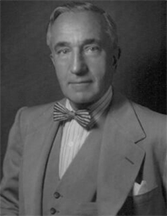
Sauer was a pediatrician and associate professor at Feinberg from 1941-1959. He perfected the pertussis vaccine in 1931, saving countless lives. In 1949, he figured out how to combine his pertussis vaccine with the diphtheria and tetanus vaccines to make the single injection of the DPT vaccine. He gave away all his discoveries to the pharmaceutical industry for free.
Isaac Abt, MD
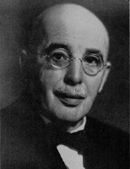
Isaac Abt, MD, pediatrician and medical school professor, graduated from Northwestern University Medical School in 1891. He was a pioneer in pediatrics, and his eight-volume “System of Pediatrics” is a classic in the field. Abt pioneered the early work on incubators for premature infants and co-developed a successful electric breast pump. He was the first physician in Chicago to administer diphtheria antitoxin, and he was the first American pediatrician to use protein milk in the treatment of diarrhea.
Carla Pugh, MD, PhD
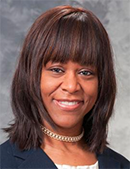
Guillermo A. Ameer, ScD
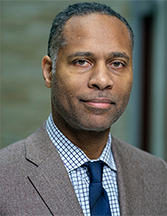
Guillermo Ameer, ScD, is widely recognized for pioneering regenerative biomaterials based on a novel class of biodegradable polymers containing citrate, and using them to regenerate a variety of tissues and organs. He was elected into the National Academy of Medicine in 2021 for his work bringing regenerative engineering technology into clinical care.
Joseph Bass, MD, PhD
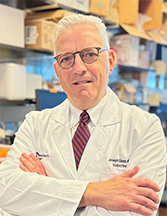
Henry B. Betts, MD
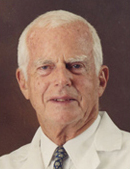
Henry B. Betts, MD, has devoted his career to improving the lives of people with disabilities. In 1990, Betts' support and guidance for the Americans with Disabilities Act encouraged the nation to focus on disability issues. His advocacy also encouraged the city of Chicago to create curb cuts to improve access for people with disabilities. Betts was appointed chair of the Department of Physical Medicine and Rehabilitation at Northwestern University Medical School in 1967.
Gary Borisy, PhD
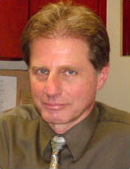
In 1965, Gary Borisy, PhD, discovered the protein tubulin, which comprises a key part of the cell's cytoskeleton. He provided important insights into chromosome movement and the role of the protein actin, a major component of cell motility, and the dynamics of microtubules, filaments that help direct cell division. Borisy, now an adjunct professor, was previously associate vice president for research and the Leslie B. Arey Professor of Cell & Developmental Biology.
William T. Bovie, PhD
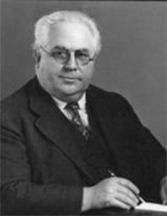
William T. Bovie, PhD, is recognized for conceptualizing the field of biophysics. He became a faculty member at Northwestern (1927-1929) as the first chairman the of the Department of Biophysics at Feinberg. He is credited with creating the Bovie electrocautery device now used in every modern operating room to control bleeding in the surgical field.
Serdar E. Bulun, MD
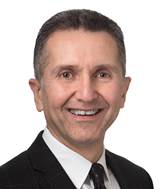
Serdar Bulun, MD, chair of Obstetrics and Gynecology, is widely recognized for pioneering molecular medicine in the field of gynecology. He discovered the epigenetic basis of endometriosis and introduced aromatase inhibitors as a novel class of drugs to effectively treat it. He has also contributed significantly to the systems biology of hormone-responsive disorders of the breast, including cancer.
William Heath Byford, MD
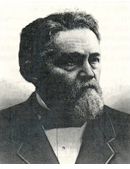
William Byford, MD, was the head of obstetrics and diseases of women and children at Lind University, now known as the Feinberg School of Medicine. He’s best known as one of the leaders in the American system of gynecology and for founding the Women's Medical College in 1870. A prolific writer, he gained early notoriety with journal articles on performing Caesarian sections.
David Cella, PhD
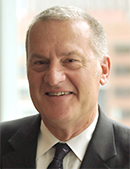
David Cella, PhD, helped establish the Feinberg Department of Medical Social Sciences as inaugural chair in 2009, helming the department for more than a decade. A social scientist by training, Cella is internationally regarded for his innovations in measuring patient-reported outcomes and applying those measurements to clinical applications, including those used in health information technology.
Dudley Childress, PhD
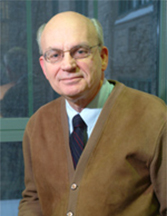
Dudley Childress, PhD, was a faculty member at Feinberg for 47 years in the Department of Physical Medicine and Rehabilitation before his retirement. He was a pioneer in biomechanics and rehabilitative engineering. Producing the first power controlled wheelchair and developing a state-of-the-art motion analysis system were among his many contributions to rehabilitative medicine.
Nathan Smith Davis, MD
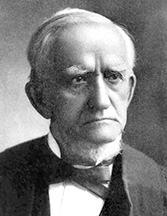
In 1859, Nathan Smith Davis co-founded the medical department of Lind University, which later became the Chicago Medical College and eventually the Northwestern University school of medicine. He served as a university trustee until the time of his death. He was instrumental in the founding of the American Medical Association and was one of the founders of the Chicago Medical Society, the Chicago Historical Society, the Chicago Academy of the Sciences and the Union College of Law, which eventually became the Northwestern University school of law.
John Eccles, PhD
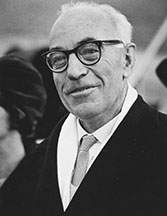
John Eccles, PhD, Andrew Huxley and Alan Lloyd Hodgkin shared the 1963 Nobel Prize in Physiology or Medicine for their fundamental work on the synapse. Eccles, an Australian neurophysiologist and philosopher, was a professor at the Feinberg School of Medicine from 1966-1968. He later worked with Bernard Katz on some of the experiments that elucidated the role of acetylcholine as a neurotransmitter.
Edmond I. Eger II, MD
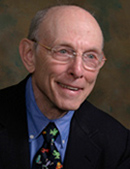
Edmond I. Eger II, MD, Class of 1955, developed the potency concept of minimum alveolar concentration that became the standard for safely administering anesthetic gases. He also identified new drugs such as isoflurane, sevoflurane, and desflurane, general anesthetics that are still widely used.
Michael Fleming, MD, MPH
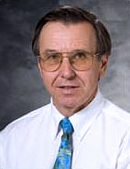
Michael Fleming, MD, MPH, professor emeritus of Psychiatry and Behavioral Sciences, has served as the principal investigator on more than a dozen National Institutes of Health grants and contracts related to behavioral interventions in community-based primary care practices. In 2005, he was elected to the Institute of Medicine of the National Academy of Sciences. Since then, Fleming has published more than 135 peer-reviewed research papers in more than 40 publications.
Robert F. Furchgott, PhD
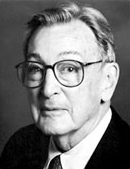
Robert Furchgott, PhD ’40, received the Nobel Prize in Physiology or Medicine in 1998, which he shared with Louis J. Ignarro and Ferid Murad for “their discoveries concerning nitric oxide as a signaling molecule.” Furchgott’s discoveries have helped scientists understand and find new treatments for cardiovascular diseases and other conditions ranging from immune disorders to memory loss, pulmonary disease and erectile dysfunction.
William Grobman, MD
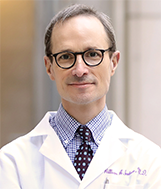
William Grobman, MD, MBA, ’97 ’00 GME, investigates prediction and prevention of adverse obstetric health outcomes, such as preterm birth and preeclampsia. This research includes evaluations of chronic stress and other social determinants of health. He also has focused on determining approaches to labor and delivery that can help to safely reduce the chance of cesarean delivery.
Alice Hamilton, MD
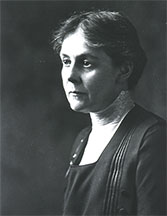
Alice Hamilton, MD, was professor of Pathology and director of Laboratories at the Women’s Medical School at Northwestern University from 1897 to 1902. Her focus on public health issues and industrial diseases were widely recognized over her career. She was the first woman named to a professorial position at Harvard Medical School, served on the Health Committee of the League of Nations and received her public service award for work that profoundly enlarged the possibilities for medical research and the health sciences and their impact on the health of the public.
Mark C. Hersam, PhD
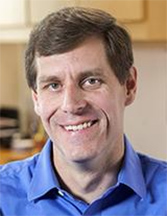
Mark C. Hersam, PhD, is the Walter P. Murphy Professor of Materials Science and Engineering and Director of the Materials Research Center at Northwestern University. He also holds faculty appointments in the Departments of Chemistry, Applied Physics, Medicine, and Electrical Engineering. His research interests include nanomaterials, nanomanufacturing, scanning probe microscopy, nanoelectronic devices, biosensors, and renewable energy.
John Hamilcar Hollister, MD
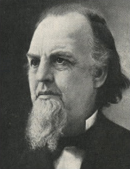
John Hollister, MD, was chairman of the medical and surgical staff at Cook County Hospital from 1866-1896 and was treasurer of the Illinois State Medical Society for 22 years before becoming its president in 1875. Hollister held several different chairs at Lind University — now known as the Feinberg School of Medicine — ending with the professorship of clinical medicine, which he retained from 1882 to his retirement in 1895.
Scott Hultgren, PhD
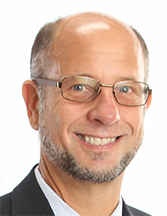
Scott Hultgren, PhD, received his doctorate in Microbiology-Immunology from Northwestern University Feinberg School of Medicine. His focus has been in elucidating basic mechanisms of bacterial pathogenesis and to study the molecular details of host-pathogen interactions that occur during urinary tract infections caused by E. coli. At Washington University, he has become a worldwide authority on issues relating to the structure and function of adhesive fibers called pili that play critical and unexpected roles in host-pathogen interactions along the urinary tract.
Ralph Nelson Isham, MD
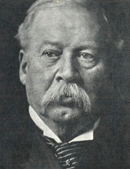
President Abraham Lincoln appointed Ralph Isham, MD, surgeon in charge of the U.S. Marine Hospital in Chicago. The organizational meeting for the Lind University medical department took place in Isham's office, and he became the youngest faculty member. Lind University is now known as the Feinberg School of Medicine.
J. Larry Jameson, MD, PhD
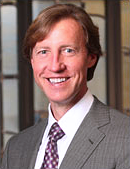
J. Larry Jameson, MD, PhD, served as chair of the Department of Medicine from 2000 to 2007, when he was named vice president for medical affairs and dean of the medical school. He has a long-standing interest in the genetics of endocrine tumors and possible approaches to their treatment. He has published more than 250 scientific articles and co-edited the fourth and the fifth editions of the authoritative text, “DeGroot and Jameson’s Endocrinology.”
Marc Jenkins, PhD
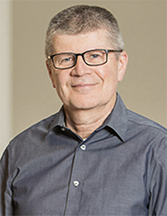
Marc Jenkins, PhD, received his doctorate in Microbiology-Immunology from Northwestern University Feinberg School of Medicine. During his postdoctoral training under Ronald Schwartz at the National Institutes of Health, Jenkins demonstrated the critical importance of a costimulatory signal for T-cells to achieve full activation and avoid a state of anergy. This discovery fundamentally reshaped the prevailing understanding of T-cell activation mechanisms, paving the way for further investigation into the molecular mechanisms governing T-cell activation and immune tolerance. His subsequent work at the University of Minnesota has been strongly focused on CD4 T-cell biology.
Hosmer A. Johnson, MD
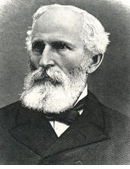
Hosmer Johnson, MD, was regarded as a pioneer in the field of nose and throat surgery and was also a leader in the use of the microscope and the thermometer. In 1859, he was part of the effort to negotiate with the trustees of Lind University to start its medical department. Lind University later became the Feinberg School of Medicine.
Virgil Craig Jordan, PhD
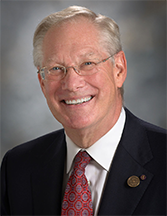
V. Craig Jordan, PhD, MD (Hon.), was professor of Molecular Pharmacology (1993-2004) at Feinberg, the Diana Princess of Wales Professor of Cancer Research (2000-2004), and Director of the Lynn Sage Cancer Research Program at the Robert H. Lurie Cancer Center. He received an OBE (2006) from Queen Elizabeth and numerous other awards. Jordan is known as the father of Tamoxifen for the treatment of breast cancer. He finished his career at the MD Anderson Cancer Center.
Shana Kelley, PhD
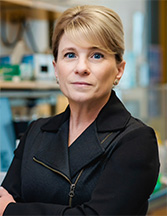
Shana Kelley, PhD, is the Neena B. Schwartz Professor in the Departments of Chemistry, Biomedical Engineering, and of Biochemistry & Molecular Genetics. She is also the president of the Chan Zuckerberg Biohub Chicago. The Kelley research group works in a variety of areas spanning bio-analytical technology development and has pioneered new methods for tracking molecular and cellular analytes with unprecedented sensitivity.
Melina Kibbe, MD
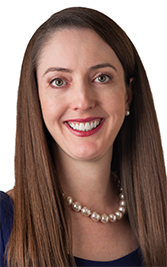
Melina Kibbe, MD, ’03 GME, is an expert in the treatment of carotid stenosis, peripheral vascular disease and abdominal aortic aneurysms. From 2011-2016, she served as deputy director of Northwestern’s Simpson Querrey Institute for BioNanotechnology and vice chair of the Department of Surgery. Northwestern recognized Kibbe for her outstanding talents as an educator of the next generation of surgeons, honoring her with 18 awards for teaching excellence.
Dimitri Krainc, MD, PhD
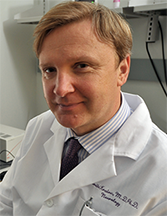
Dimitri Krainc, MD, PhD, Aaron Montgomery Ward Professor, chair of the Ken & Ruth Davee Department of Neurology and director of the Simpson Querrey Center for Neurogenetics, has dedicated his scientific career to studying molecular pathways in the pathogenesis of neurodegeneration. Informed by genetic causes of disease, his work has uncovered key lysosomal and mitochondrial mechanisms across different neurodegenerative disorders that has led to pioneering design and development of targeted therapies. He is a member of the Association of American Physicians, the National Academy of Inventors and the National Academy of Medicine.
Todd A. Kuiken, MD, PhD
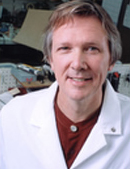
Todd Kuiken, PhD '89, MD '90, GME '95, is known as the creator of the "Bionic Arm,” the first major advancement in prosthetics since World War II. His neuro-controlled prosthetic arm allows an amputee to move his or her artificial limb simply by thinking about it and provides more natural movement and greater range of motion. Kuiken dedicated more than 25 years of his career at Shirley Ryan AbilityLab.
Robert Lamb, PhD
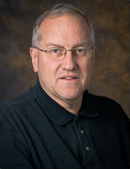
Robert Lamb, PhD, has studied the replication and pathogenesis of influenza virus and paramyxoviruses, specifically virus-mediated membrane fusion, the action of protein-selective ion channels, enveloped virus assembly and how these viruses defeat innate immunity. Lamb contributed nearly 40 years of service at Feinberg and Weinberg College of Arts and Sciences.
Laszlo Lorand, PhD
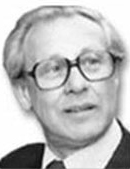
Laszlo Lorand, PhD, and his collaborators made discoveries that laid the foundation for the molecular understanding of the clotting of fibrinogen in blood. This led to the reconstruction of the physiological process as well as to the diagnosis of unusual bleeding disorders. His work served as a foundation for studying protein cross-linking in aging cells. He was the first director of a National Institutes of Health-funded Biochemistry Training Program and is a founding member of the Department of Cell & Developmental Biology.
George D. Lundberg, MD

George Lundberg, MD, is recognized internationally for his work in tropical medicine and forensic medicine. He is widely regarded as an early pioneer of the medical internet. For 17 years, Lundberg served as the editorial lead on 39 American Medical Association medical journals, “American Medical News” and various internet products.
Paul B. Magnuson, MD
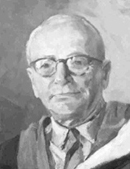
Paul B. Magnuson, MD, was a renowned orthopedic surgeon who became an advocate for people with disabilities while serving as the medical director for the Veterans Administration during World War II. He was also the former chair of the Department of Orthopaedic Surgery at Northwestern University Medical School and the founder of the Rehabilitation Institute of Chicago (now the Shirley Ryan AbilityLab).
Charles H. Mayo, MD
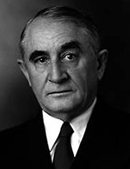
Charles H. Mayo, MD, founder of the Mayo Clinic and Mayo Graduate School of Medicine, graduated from Northwestern University Medical School in 1888. A renowned surgeon, Mayo pioneered modern goiter surgery and surgical techniques for the nervous system. Mayo received the U.S. Distinguished Service medal, served as president of the American Medical Association and was a trustee of Northwestern University.
Thomas McDade, PhD
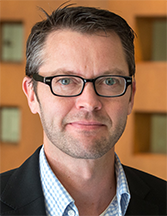
Thomas McDade, PhD, is a biological anthropologist who specializes in human population biology. His work is primarily concerned with the dynamic interrelationships among society, biology and health over the life course, with an emphasis on life course approaches to stress and the human immune system. He was a 2002 recipient of the Presidential Early Career Award for Scientists and Engineers (PECASE).
Elizabeth M. McNally, MD, PhD
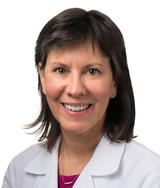
Elizabeth McNally, MD, PhD, investigates the genetic mechanisms responsible for inherited human diseases including heart failure, cardiomyopathy, muscular dystrophy, arrhythmias and aortic aneurysms. McNally’s contributions to genome analysis have bettered understanding of rare genetic variation, allowing identification of genes that modify the outcomes of genetic diseases. She is a member of the National Academy of Medicine, National Academy of Inventors and the American Academy of Arts and Sciences.
Chad A. Mirkin, PhD
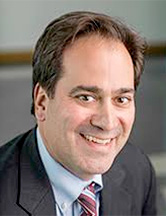
Chad Mirkin, PhD, is a chemist and world-renowned nanoscience expert known for his discovery and development of spherical nucleic acids and contributions to supramolecular chemistry and nanoparticle synthesis. He has authored over 870 manuscripts and over 1,200 patent applications worldwide (over 430 issued) and founded multiple companies. He is an Associate Editor of JACS and a PNAS Editorial Board Member.
Milan Mrksich, PhD
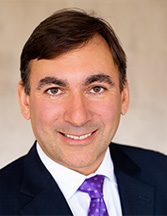
Milan Mrksich, PhD, is considered a world leader in engineering the interface between cells and surfaces. He has helped oversee Northwestern University’s research enterprise as vice president for research since 2020. Among his many honors, Mrksich is a Howard Hughes Medical Institute Investigator.
Ferid Murad, MD, PhD
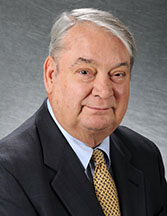
Ferid Murad, MD, PhD, Robert F. Furchgott and Louis J. Ignarro shared the 1998 Nobel Prize in Physiology or Medicine. Murad's discoveries helped scientists understand and find new treatments for cardiovascular diseases and other conditions ranging from immune disorders to memory loss, pulmonary disease and erectile dysfunction. From 1988-1998, he was an adjunct faculty member in Pharmacology and Cell & Developmental Biology.
Eric G. Neilson, MD
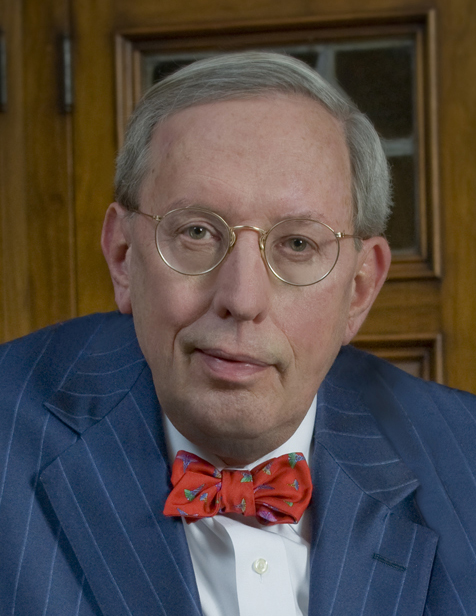
Eric Neilson, MD, vice president for medical affairs and Lewis Landsberg Dean, came to Feinberg after serving as the Hugh Jackson Morgan Professor and chairman of the Department of Medicine at Vanderbilt University School of Medicine and the C. Mahlon Kline Professor at the University of Pennsylvania. His research has made important contributions to understanding the cell fate of fibroblasts in fibrogenesis, the expression of the nephritogenic immune response and the biochemical mechanisms of renal hypertrophy.
Anna C. Nobre, PhD
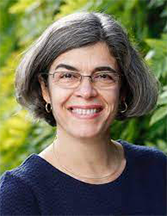
Anna Nobre, PhD, is a distinguished cognitive neuroscientist at the University of Oxford with an adjunct appointment in the Department of Neurology at Feinberg since 2001. Her work focuses how the brain prioritizes and selects information from the sensory stream and from memories at various time scales to form psychological experience and guide behavior. In particular, she has identified brain areas specialized for word recognition and face processing in the human using intracranial recordings, described the functional neuroanatomy of the network for controlling spatial attention in the human brain and noting its relation to oculomotor control, pioneered the neuroscientific study of temporal expectations, demonstrating the ability to orient selective attention within working memory, developed new experimental approaches to investigate how long-term memories guide selective attention, and introduced new somatic markers of attention in memory.
Sandra F. Olson, MD
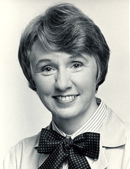
Roswell Park, MD
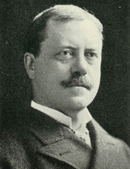
Roswell Park, MD, received his medical degree from Northwestern University Medical School in 1876. Park founded the Roswell Park Cancer Institute, America’s first cancer center, in 1898. His revolutionary model of a multidisciplinary approach to cancer with scientists and clinicians working together has become the standard by which modern-day comprehensive cancer centers are measured.
Hans Popper, MD, PhD
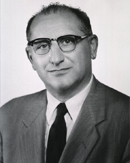
Hans Popper, MD, PhD, is widely regarded as the father of hepatology. After completing his service in World War II in 1949, Popper was appointed associate professor of pathology at Northwestern University Medical School. He published more than 800 papers with a focus on the liver in health and disease and became a founding member of the American Association for the Study of Liver Diseases.
Susan Quaggin, MD
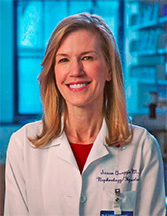
Susan Quaggin, MD, has helped enhance the understanding of common glomerular diseases and inspired the development of promising therapeutics, including discoveries regarding blood vessels, lymphatics and specialized hybrid circulations. Quaggin and her collaborators are attempting to bioengineer new organs in a dish as well as study the mechanisms of glaucoma. She is the director of the Feinberg Cardiovascular and Renal Research Institute and chief of Nephrology and Hypertension in the Department of Medicine and past-president of the American Society of Nephrology.
Stephen Walter Ranson, MD, PhD
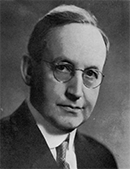
Stephen Walter Ranson, MD, PhD, was one of the most distinguished neuroanatomist of the early 20th Century and Director of the Institute of Neurology at the medical school in the 1930s. He and his colleagues mapped the unmyelinated fibers of the spinal ganglia and explored the structure and function of the hypothalamus, particularly as it relates to emotion, position in space, water balance, temperature regulation, sympathetic response, and the rhythm of sleep. He taught many medical students through his influential textbook, The Anatomy of the Nervous System.
Alfred Newton Richards, PhD
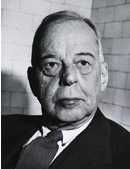
Alfred Newton Richards, PhD, proved kidneys filter blood by inventing glomerular micropuncture, was the first to employ inulin to study glomerular filtration rate and determined that renal tubules secreted or reabsorbed various substances in processing final urine. President Franklin D. Roosevelt appointed him to head the Committee on Medical Research during World War II. In that role, Richards put penicillin in production as a therapeutic agent. He was appointed the first professor of Pharmacology at Northwestern University Medical School starting in 1908.
Howard Taylor Ricketts, MD
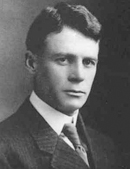
Howard Taylor Ricketts, MD, was a pathologist and infectious disease investigator. He graduated from Northwestern University Medical School in 1897 and by 1908 had won worldwide acclaim for his identification of the bacterial organism of Rocky Mountain Spotted Fever. The class of bacteria responsible for both Rocky Mountain Spotted Fever and typhus was named the Rickettsia in his honor.
John A. Rogers, PhD
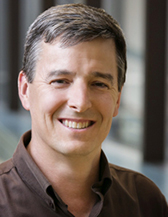
John Rogers, PhD, is internationally known for designing and developing classes of electronic devices with diverse diagnostic and therapeutic function that can bend, stretch and twist to integrate with the human body. His research spans disciplines and exploits novel approaches to problems with the potential to change the fields of industrial, consumer and biocompatible electronics. He is a member of the National Academies of Engineering, Inventors, Medicine and Sciences, as well as the American Academy of Arts and Sciences. His election to the Royal Society makes him only one of three scientists who are members of all three U.S. National Academies and the Royal Society.
Richard Schlegel, MD, PhD
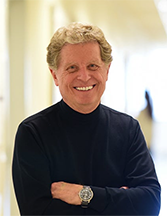
Richard Schlegel, MD, PhD, received his MD and PhD from Northwestern University Feinberg School of Medicine. He pursued residency training and a postdoctoral fellowship at Harvard University before working at the National Institutes of Health and later Georgetown University, where he pioneered research on the human papillomavirus, which led to the first vaccine against cervical cancer.
Andrew E. "Drew" Senyei, MD
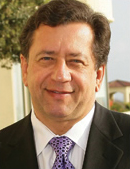
Drew Senyei, MD, alumnus, has been a managing director at the venture capital firm Enterprise Partners since 1987. He leads the life science practice, focusing on investments in pharmaceuticals, biopharmaceuticals, diagnostics, medical devices, and consumer healthcare. While still a medical student, he and classmate Kenneth J. Widder, MD '79, developed a drug delivery device and licensed it to Eli Lilly.
Ali Shilatifard, PhD
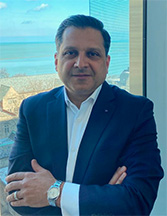
Ali Shilatifard, PhD, is the Robert Francis Furchgott Professor, chair of the Department of Biochemistry and Molecular Genetics and director of the Simpson Querrey Institute for Epigenetics. A pioneer in the field of epigenetics and distinguished cancer biologist, Shilatifard discovered the first link between transcription elongation control and human cancer. His insights have led him and numerous other investigators to develop new cancer therapeutics, and his accomplishments as both a scientific and academic leader have propelled him to the front line of advancing epigenetics and cancer research.
Richard Silverman, PhD
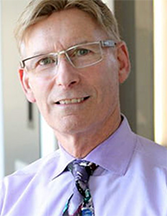
Richard B. Silverman, PhD, is a professor in the Weinberg College of Arts and Sciences and of Pharmacology in the Feinberg School of Medicine. His research focuses on central nervous system disorders, including amyotrophic lateral sclerosis (ALS), Alzheimer’s disease, Parkinson’s disease, and epilepsy, and on cancer, including melanoma and hepatocellular carcinoma, with the goal of developing pharmaceutical therapies. He is the inventor of Lyrica, a breakthrough drug marketed by Pfizer for epilepsy, fibromyalgia, and neuropathic pain.
Melissa Simon, MD, MPH

Susan Skochelak, MD, MPH
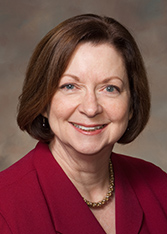
Susan Skochelak, MD, MPH, is a nationally recognized authority in medical education. She serves as the group vice president for medical education at the American Medical Association, where she leads the strategic initiative “Accelerating Change in Medical Education,” and created the AMA Center to Transform Medical Education.
David J. Skorton, MD
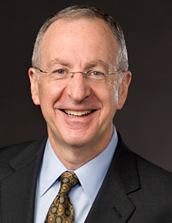
David J. Skorton, MD, is the secretary of the Smithsonian Institution in Washington, D.C. He graduated from Northwestern University in 1970 and the Feinberg School of Medicine in 1974. He received the Distinguished Alumni Award from the Feinberg School of Medicine in 2009.
Sara Solla, PhD
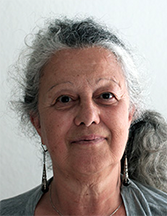
Sara Solla, PhD, applies statistical mechanics to the analysis of complex systems. Solla’s research has led her to the study of neural networks, powerful artificial intelligence models thought to be somewhat analogous to the way the human brain stores and processes information.
Patricia Spear, PhD
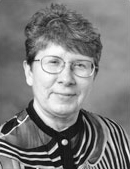
Patricia Spear, PhD, identified the mechanisms the herpes simplex virus types 1 and 2 use to enter cells. She also characterized the cell surface carbohydrates and proteins require for penetration of human cells and viral spread by cell-cell fusion. She is professor emeritus in Microbiology-Immunology.
Thomas E. Starzl, MD, PhD

Thomas E. Starzl, MD '52, PhD '52, and faculty member at Northwestern (1959-61), known as the father of transplantation, performed the first successful liver transplant in 1967 at the University of Colorado. Starzl also conducted the first multiple organ transplant in 1983, the first heart and liver transplant in 1984 and the first liver and intestine transplant in 1990. In 1980, he introduced the anti-rejection medications anti-lymphocyte globulin and cyclosporine. He was instrumental in developing tacrolimus, a drug that significantly increased post-transplantation survival rates.
Samuel I. Stupp, PhD
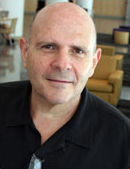
Samuel Stupp, PhD, studies nanostructures and materials with emphasis in regenerative medicine, organic electronics, solar energy and cancer therapies. He was elected to the National Academy of Engineering in 2012 for his work on the biomedical applications of self-assembled polymers. He is also a member of the National Academies of Sciences, Engineering and Inventors, and of the American Academy of Arts and Sciences.
Edwin Taylor, PhD
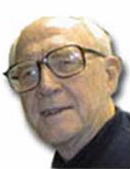
Edwin Taylor, PhD, made significant contributions to understanding the biochemistry of muscle contraction and cytoskeletal research. His investigations provided the first kinetic model describing how molecular motors convert chemical energy into mechanical force. He discovered several molecular cell motors, some of which assist in the motility of certain white blood cells, and showed how actin and myosin induce movement in non-muscle cells.
Alexis Thompson, MD, MPH
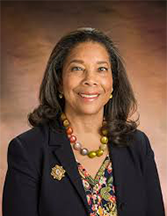
Mary Thompson, MD
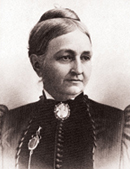
Mary Thompson, MD, was the first female surgeon in the United States and, in 1870, was Northwestern Medical School's first female medical graduate. She founded the Women's Medical College, the first medical school for women in the Midwest; the Chicago Hospital for Women and Children, the first hospital staffed by female physicians; and helped found Chicago’s first nursing school. She also developed a number of surgical instruments and procedures.
Daniel Martin Watterson, PhD
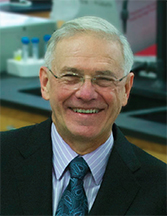
Daniel Martin Watterson, PhD, investigates the elucidation of signal transduction pathways in eukaryotic cells that are involved in both health resilience and disease susceptibility for potential new therapeutic approaches in tumor biology, intestinal disorders and neurologic diseases such as Alzheimer’s.
Daniel Hale Williams, MD
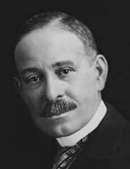
Daniel Hale Williams, MD, was the school’s first Black graduate and faculty member, the first Black fellow of the American College of Surgeons and the principal founder of the National Medical Association. Williams founded Provident Hospital in Chicago, the first Black-owned and -operated interracial hospital in the country in 1891. He performed one of the world’s first successful heart operations in 1893, and President Grover Cleveland appointed him surgeon-in-chief at Freedman’s Hospital, Washington, D.C., in 1894.
William Frederick Windle, PhD
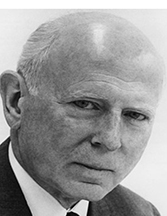
William Frederick Windle, PhD, received his PhD from Northwestern University Medical School in 1926 working with Stephen Walter Ranson, MD, PhD. His independent studies centered on the development of the central nervous system, and in 1942 he succeeded Ranson as Director of the Institute of Neurology. Windle held subsequent appointments at the University of Washington, University of Pennsylvania, the National Institutes of Health, and New York University before he retired, and founded the journal Experimental Neurology in 1959. His 1968 Lasker Award was related to his work on neonatal asphyxiation and brain damage leading to cerebral palsy and mental retardation in infancy.
Teresa K. Woodruff, PhD
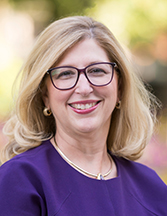
Teresa Woodruff, PhD, is an expert in ovarian biology. She is credited with coining the term "oncofertility" in 2006. Woodruff served as the chief of the Division of Reproductive Science in Medicine in the Department of Obstetrics & Gynecology and founded the Women’s Health Research Institute. She is a member of the National Academies of Medicine and Inventors and the American Academy of Arts and Sciences.
Catherine Woolley, PhD
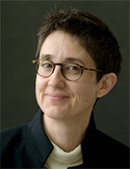
Catherine Woolley, PhD, focuses her research on understanding estrogen’s actions in cognitive areas of the brain and sex differences in molecular mechanisms of synaptic plasticity. Early in her career, Woolley discovered that estrogens drive synaptic plasticity in the hippocampus. Since then, her work has helped to explain how estrogens enhance learning and memory consolidation.
Clyde W. Yancy, MD
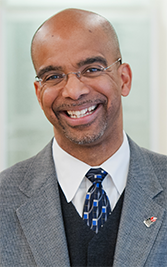
Clyde Yancy, MD, MSc, is an internationally recognized expert in preventive cardiology, cardiomyopathy and racial and ethnic disparities in cardiovascular disease. He serves as vice dean for Health Equity and chief of Cardiology in the Department of Medicine. Yancy is also a member of the National Academy of Medicine and a former president of the American Heart Association.
